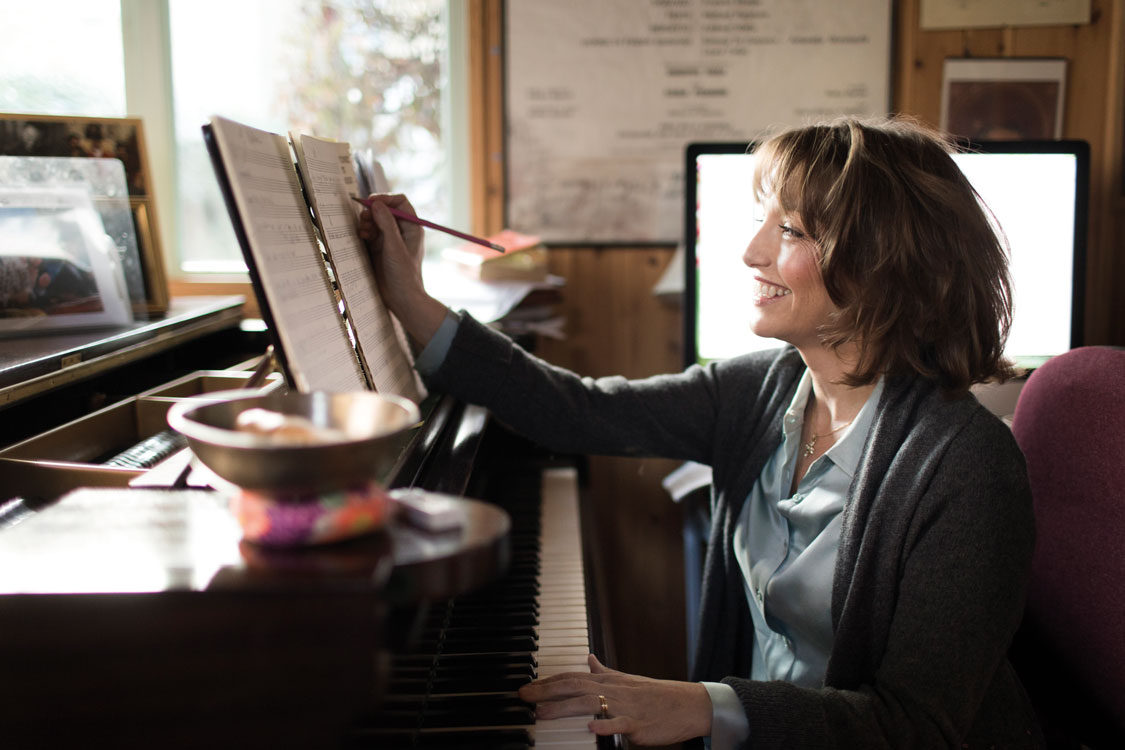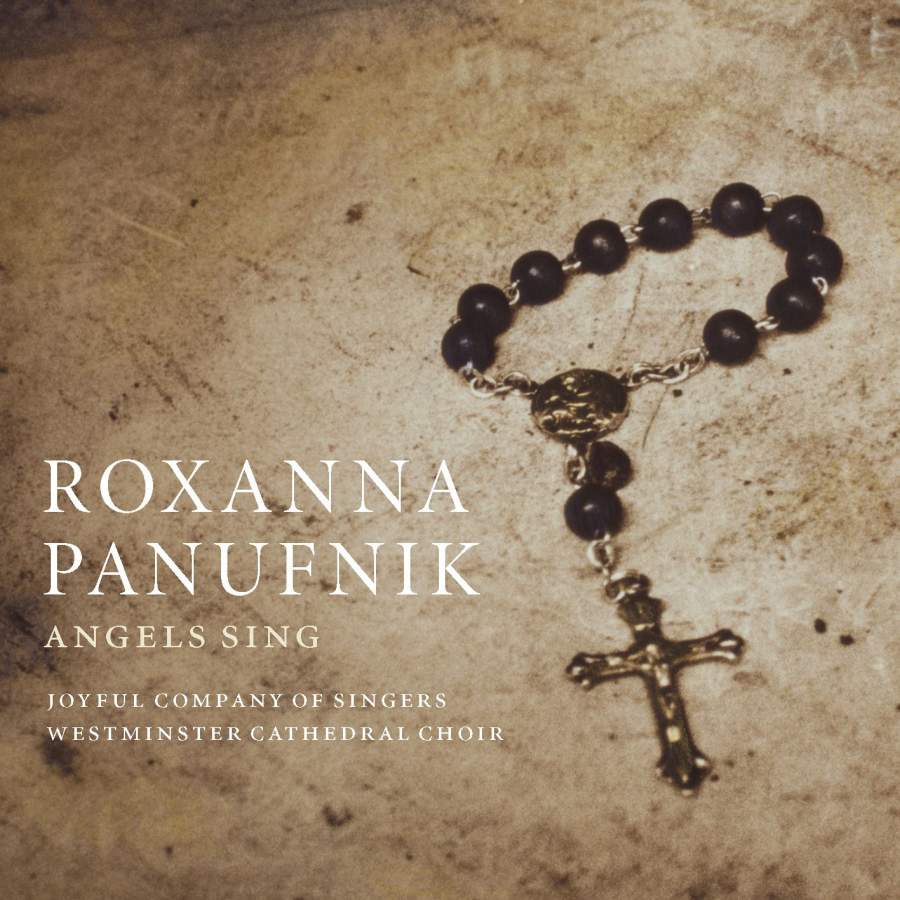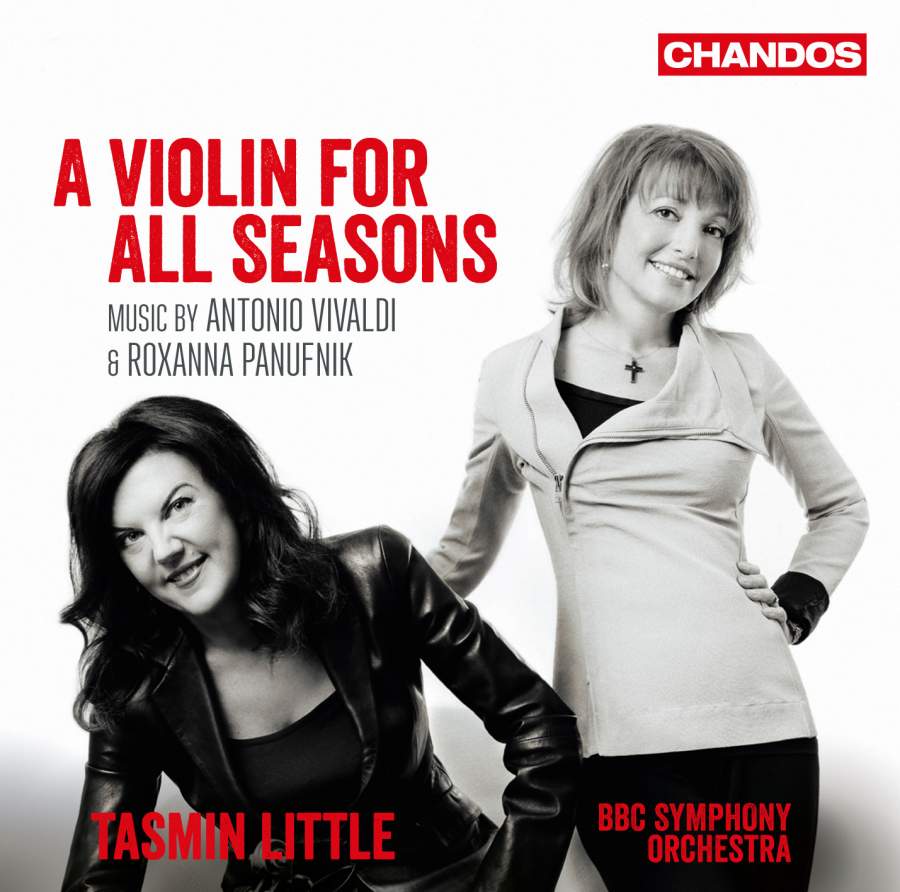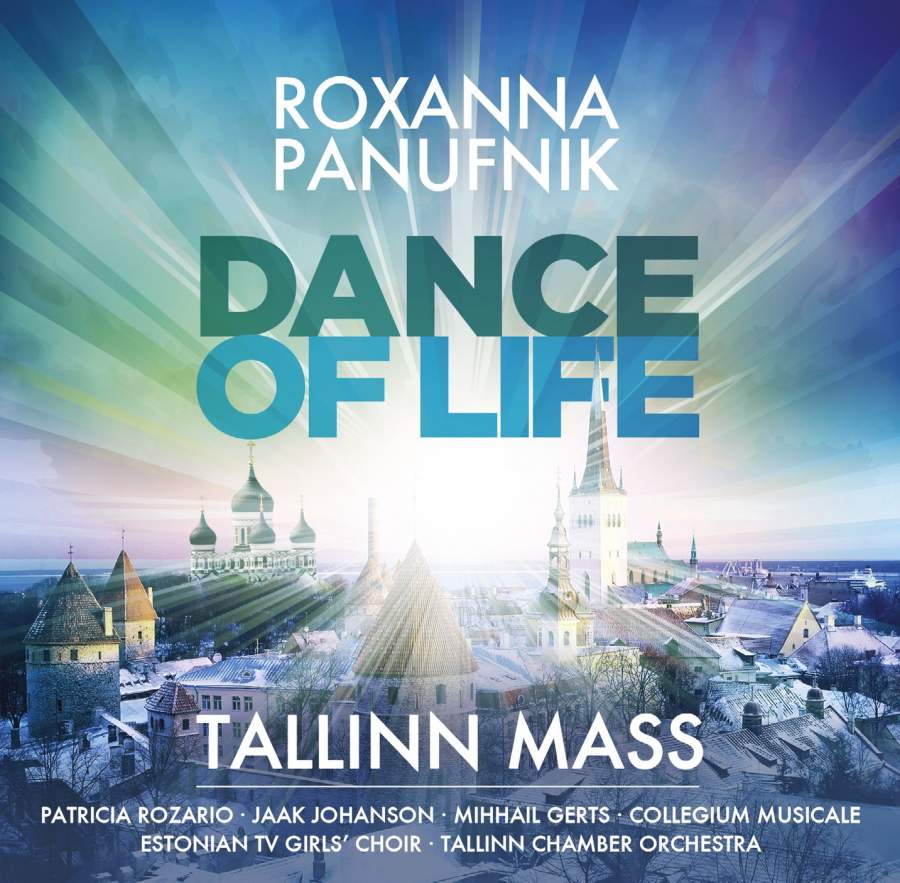Contemporary composer: Roxanna Panufnik
Pwyll ap Siôn
Wednesday, March 6, 2019
Pwyll ap Siôn delves into the world of the quiet revolutionary who attempts through her music to bring together people and faiths

There’s a different kind of revolution taking place in today’s contemporary music, and at its heart lies Roxanna Panufnik. Hers is not a radical revolution designed to overhaul the old order completely, à la Schoenberg or Cage. Instead, here is a quiet revolution that utilises music’s power to unite people from different cultures, religious backgrounds and political persuasions: a revolution that is more John Lennon than John Cage.
In Panufnik’s own words: ‘I’m on a mission to shout from the rooftops the beauty of all these different faiths’ music. It’s about bringing us together. Too often we don’t think about what we have in common, but instead about our tiny fraction of difference from each other.’
The importance of music’s social and political function was, of course, not lost on Roxanna’s father. The well-known, much admired and highly regarded Polish composer Sir Andrzej Panufnik (1914-91) was forced to escape the oppressive post-war climate of his native country in 1954. He arrived in London and some nine years later married author and photographer Camilla Jessel. Roxanna was born in 1968.
If Panufnik senior’s musical experiences in Communist-controlled Poland were largely negative, Roxanna’s aim has been to use music to communicate a message of religious tolerance, harmony and world peace by finding and building musical bridges between faiths.
Brought up in a creative and stimulating musical and artistic environment, Roxanna started improvising at a young age, eventually starting to write out her own compositions at the age of 12. From there, she went on to study composition at the Royal Academy of Music, with the harp as her second study. However, this was not the most propitious time for aspiring young composers. The landscape of contemporary music at the end of the 20th century was marked by ever widening and deepening fissures between tonality and atonality, emotion and intellect, complexity and simplicity, radicalism and conservatism. For composers, such as Panufnik, who were attempting to strike a balance between these opposite extremes there was little room for manoeuvre, and her musical style was criticised for being too naive.
After three years working at the BBC as a researcher, Panufnik was offered a place at the prestigious National Film and Television School in Beaconsfield. But there she struggled to adapt her own emerging individual voice to the creative restrictions of industry requirements with the obsessive emphasis on technical know-how and attendant pressures on composers to churn out music to specific briefs. She felt a need to remain true to her own musical convictions and the spirit of independence inherited from her father.
Before his death in 1991, Panufnik’s father gave her a book of old Polish folk music from the Tatra Mountains. She immediately fell in love with the music’s combination of beauty and quirkiness and soon started exploring melodies, modes and rhythms from all corners of the world, sharpening her focus on music’s rich ethnographic detail. The first large-scale work to draw on these influences was the Westminster Mass (1997), a setting of the missa brevis with the addition of Psalm 63 (‘Deus, Deus meus’). In this piece – written for treble or soprano solo, double choir and organ (or ensemble) and commissioned by John Studzinski for Westminster Cathedral Choir on the occasion of Cardinal Basil Hume’s 75th birthday in May 1998 – Panufnik immersed herself in the forms and orders of the Western liturgy, even spending time on a retreat with the nuns at Stanbrook Abbey in the Malvern Hills. Plainchants and pealing church-bell patterns are heard throughout, absorbed into Panufnik’s uniquely identifiable sound world, where jubilant, upbeat passages are contrasted with darker moments. Vivid, shifting tonalities and arching melodic lines give way to animated speechlike rhythms and patterns. Two harps and tubular bells are employed in the ensemble version to impart a bright, ceremonial sheen to the work.
Westminster Mass evidenced Panufnik’s innate aptitude for choral writing – an ability to identify with the text and to produce musical lines that follow the natural rhythms and pitches of the spoken word. She naturally gravitates towards words, and points out with typical modesty that this is because ‘half the work is done for you – the rhythms, structures, mood, length – everything is there in the text!’
While it is true that much of her output is vocal, Panufnik has also been successful in the area of instrumental music, the most obvious example being the violin concerto Four World Seasons (2007-11), written with Tasmin Little’s brilliant virtuosity and beautiful tone in mind. Panufnik casts the musical net further afield here: an Albanian dance celebrates autumn; perhaps most memorably, a haunting love song from the nomads of eastern Tibet is used for the winter movement, to the accompaniment of a Tibetan singing bowl; pentatonic patterns evoke the cherry blossoms of spring in Japan; and the vibrant heat and rhythmic throb of an Indian summer is evoked.
Four World Seasons provides perhaps the clearest evidence of Panufnik’s willingness to travel far and wide to discover an appropriate mood for her music, an idea further explored in the wonderfully evocative Unending Love (2017). A setting of a love poem by Rabindranath Tagore for double choir, Carnatic singer, Indian violin, sitar, veena and Indian percussion, Unending Love again foregrounds Panufnik’s melodic inventiveness, but it is now clothed in more obviously vibrant instrumental colours and textures, producing an effective synthesis. A brilliant recording of the work will appear on the forthcoming ‘Celestial Bird’ disc on Signum, released in September and previously featured in Gramophone’s ‘For the Record: Studio Focus’ (3/18).
Panufnik’s open, pluralistic approach ranges across regions and periods and encompasses ancient modes and rhythms, Byzantine and Western chant traditions and church acoustics, the Jewish shofar, Islamic calls to prayer, Spanish Sephardic music, Sufi music, Indian tabla and Greek bouzouki scales. However, her music rarely sounds polystylistic or eclectic, as these influences are always absorbed into a language that’s distinctly hers.
Given Panufnik’s interest in modes and melodies it may come as a bit of a surprise that the lifeblood of her musical language is harmonic. She has said, ‘Harmony is where I start,’ but it is there primarily to evoke and heighten a specific mood or atmosphere: ‘I dig around on the piano for a harmony that conjures up the right atmosphere, and from then I will know what should come next in the music.’ Tied to this is a particular fondness for stacked major–minor chords (which consist of both the major and minor versions of the same chord heard simultaneously, for example C major and C minor) – a technique inherited from her father – and a highly evolved sense of synaesthesia, where pitches and chords run the entire colour gamut from bright astringent keys in pillar-box red and golden yellow to darker purple-blues and cherry-oak browns, inherited perhaps from her mother’s interest in photography.
Overall, Panufnik’s aim has been to cross cultural and religious boundaries in order to connect the three main monotheistic faiths (Christianity, Judaism and Islam) – an aesthetics of reconciliation – through music. The next stage in this process is unveiled at this year’s Last Night of the Proms in London. Scored for double choir, Songs of Darkness, Dreams of Light sets poetry by Isaac Rosenberg and Kahlil Gibran. Panufnik draws on Jewish, Maronite and Sufi traditions to create a work that synthesises all three Abrahamic faiths. And in November there will be yet another premiere: Faithful Journey – A Mass for Poland, a joint commission between the City of Birmingham Symphony Orchestra and the Polish National Radio Symphony Orchestra, memorialising this year’s centenary of Polish independence by charting the country’s chequered history in the 20th century, viewed through the liturgical lens of the Catholic Mass.
Panufnik’s quiet revolution is set to continue unabated – crossing borders, fences, walls and oceans, and moving across classes, races and nations. If only all revolutions were carried out in the same spirit of tolerance and inclusivity.
Recommended Recordings

‘Angels Sing’
Joyful Company of Singers / Peter Broadbent; Westminster Cathedral Choir / James O’Donnell; City of London Sinfonia
Warner Classics (A/03)
Featuring the Westminster Mass and the equally impressive Douai missa brevis, this recording provides an excellent introduction to Panufnik’s rich choral style.

‘A Violin for All Seasons’
BBC SO / Tasmin Little vn with David Wright hpd Graham Bradshaw Tibetan singing bowl
Chandos (12/16)
Several composers have drawn inspiration from Vivaldi’s famous work, including Piazzolla, Leonid Desyatnikov and Max Richter, but few have managed to enrich the concept with such freshness and vitality as Panufnik has, brilliantly interpreted here by Tasmin Little.

Dance of Life
Sgrs; Madis Metsamart perc Choirs; Tallinn CO / Mihhail Gerts
Warner Classics (2/14)
As noted in Gramophone’s online feature ‘In the Studio: Roxanna Panufnik’s Dance of Life’, there is a strong sense in which all the musicians enter Panufnik’s sound world here, and are comfortable in it.
Facts
Born
April 24, 1968, London. Began composing aged three, imagining she was playing her concertos on her 1/8-size violin
Studies
Royal Academy of Music, London (1986-89), with Paul Patterson, Melanie Daiken and Hans Werner Henze; National Film and Television School, Beaconsfield (1992)
Breakthrough work
Westminster Mass (1997)
Other facts
Daughter of Sir Andrzej Panufnik (1914-91) and author–photographer Lady Camilla Panufnik (b1937)







